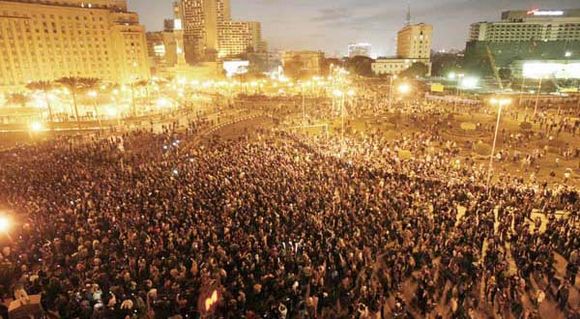Podcast: Play in new window | Download
Updates:
—
The Turkish Islamic group, IHH The Foundation for Human Rights and Freedoms and Humanitarian Relief have organized another flotilla carrying letters of support for the Palestinian people and bring attention to blockade on the Gaza Strip. As many listeners may know, last year’s flotilla ended with the death of nine activists when the Israeli Navy intercepted the Mavi Marmara. Meanwhile, the Israeli Navy is training to confront this years humanitarian effort. Turkish Foreign Minister Ahmet Davuto?lu warned Israel not to “repeat the same mistake” – in using force against the flotilla. Last week, Israeli Deputy Foreign Minister Danny Ayalon said that IHH was deliberately provoking Israel and setting the stage for a confrontation, making it responsible for any clashes that happen, according to an Israeli newspaper. Past Law and Disorder shows last year’s flotilla. June 7, 2010 / June 21, 2010 / October 2010
Felice Gellman:
- I went to Gaza right after the 2008-2009 attack thinking naively that something could be done to rebuild Gaza.
- When I got there, I grew up very quickly and realized the Israeli blockade would prevent any rebuilding from this horrific attack.
- Last year there was a flotilla that sailed at the end of May that was brutally attacked and nine civilians were murdered by Israeli commandos. There will be an American flagged boat and the passengers will be American citizens, and that is to specifically confront the US covert support for the siege of Gaza.
- The flotilla has been very much on the minds of the Israelis because it was not received well to murder nine civilians. One of them was an American citizen and the United States has done near zero to support the family.
- The initial Israeli attack strategy was to use attack dogs and snipers. Israel signed a deal with Cyprus making it the main transshipment point of natural gas from Israels natural gas development out there.
- The next day the prime minister of Cyprus announced he would not allow the flotilla to sail from Cyprus. Israel asked the Greeks not to intervene.
- The idea was to make this as diverse as possible, as representative of America as possible.
- I’ve been to Gaza twice and people say to me over and over, please we want our freedom.
- They’re saying the same thing that people are saying Egypt, Syria, Bahrain. They don’t want to live in a hand out society.
- The Rafah crossing being open doesn’t end the siege of Gaza.
—-
Attorney Richard Levy:
- As an American Jew, I feel a special responsibility to do something around this issue. When Israel first came about and we knew so little about what happened. there. The first reaction was, well this wonderful homeland.
- And then as we grew and the years past and their conduct in the West Bank, their conduct in Gaza, in trapping people, and imposing these horrible checkpoints and settlements that take away the land and take away the water.
- We met with the State Department 2 weeks ago, and pointed out to the State Dept that while the president is applauding peaceful demonstrations across the Middle East, we too are planning a peaceful demonstration.
- Instead of getting a nod and an assurance, we got an email several days later, saying that there was a maritime warning and that people should not go into the zone, everyone can expect interference by the Israelis.
- The thing that is terrible about that we all know if the US said don’t do it, Israel wouldn’t do it. As a recipient of 3 billion dollars annually of US aid, on which it is totally dependent.
- I think the problem with Israel is we’re letting AIPAC be the voice of Jewish people everywhere. We gotta get up and say, they don’t speak for us.
- You take a place like Gaza where more than 40 percent of the population is under the age of 14. It’s kids, its women, they don’t have schools, they don’t have food, they don’t have medical care.
- 90 percent of the people (in Gaza) depend on charitable donations to live at all. The fact that we’re not getting up and being heard on this, is allowing only one voice to be heard.
- And that is a very conservative pro-Israeli voice that I don’t think speaks for the American people at all.
- My optimistic side says we’re going to be massively inconvenienced.
- I think we want to call attention to the Palestinian people that they’re not completely alone. The US boat is going to be carrying a cargo of letters. From Americans to Palestinians saying we understand your plight, we support your effort to live in peace and to live without these horrible restrictions on your life.
- There was so much fear of over reaching by the US government under the Terrorism Support Act that if you brought over the most innocent product, and it found its way into the hands of Hamas, some hyped up prosecutor could go after you in this country under this very draconian statute.
- In Turkey, the Turkish boat had a million applicants to be passengers on this flotilla.
Guest – Felice Gellman, member of the Wespac Middle East Committee and a member of the Steering Committee that organized The Gaza Freedom March. She has traveled to Gaza twice since the Israeli invasion.
Guest – Attorney Richard Levy, a labor and civil rights attorney. (Cornell, B.A., 1964, NYU School of Law, J.D., 1968) is a senior partner at LR. He has practiced labor, employment, employee benefits and civil rights law since 1971. During law school he was associate editor of the Annual Survey of American Law. A member of the United States Supreme Court Bar, Levy has lectured at conferences for the NLRB, AFL -CIO, Practicing Law Institute and has published articles on labor law and civil rights litigation. He has served on the Lawyers Advisory Panel of the AFL – CIO.
—
The Arab Revolt and the Imperialist Counterattack by Jim Petras
The Arab Revolt and the Imperialist Counterattack is the title of Jim Petras’ timely new book. It was rushed to print and chronicles the growing militarization of US policy in North Africa and the Gulf region. The essays also give an important historic narrative of the long over due Arab democratic revolution and the popular uprisings. Now as the empire’s crumbling dictatorships began to spread, the United States, France and the UK race to intervene. NATO is deployed using its new “responsibility to protect” doctrine authorizing “humanitarian intervention.”
- Obama supported Mubarak since he (Obama) entered office, and only when it was absolutely clear there were millions of people in the street, the military was divided, there was absolutely no future for Mubarak, Washington then began to leverage Mubarak into a departure which would retain the entire economic, police and military apparatus intact.
- Essentially, sacrifice the dictator to save the neo-liberal, pro-Israeli state.
- The Egyptian economy has been part of a pillage, the US has been giving Egypt, 2 billion a year for decades. This is bribe money so that Egypt will continue collaborating with Israel in keeping the Palestinians under Israeli control.
- Participating in the blockade of Gaza. That’s part of the economy. The other part is that Mubarack family and cronies have essentially run the economy into the ground.
- Egypt draws its income from the Suez Canal, tourism, visiting the pyramids, on a minor scale, agriculture and textiles. But there are enormous disparities in wealth, the per capita of about 40 percent of Egyptians is 2 dollars per day.
- Egypt has a handful of billionaires all organized around the regime.
- It’s a big country with great potential but it was run into the ground by this corrupt family dictatorship.
- The picture now is the ousting of Mubarak has not amounted to substantial change in the governing class. Essentially, the military took over and kept many of the Mubarak personalities in position of power. The minister of the interior is still there, the generals are still there. They’ve been arresting and disappearing some of the pro-democracy people.
- The struggles in Egypt haven’t ended. The Washington Post and the New York Times keep talking as if the democracy process has reached its culmination.
- The surveys show that a vast amount of Egyptians want to renegotiate the arrangement the Egyptians had with the Israelis.
- This is a hot potato because the military wants to continue to get the hand outs from the US.
- The Egyptian military is trying to make a deal with the Muslim brotherhood, especially the elder statesmen.
- There is an attempt here to substitute elections for social changes and economic improvements.
- The business men who’ve been so accustomed to having everything their way are calling on the military to clamp down. To arrest the strikers. There’s been a proliferation of strikers in the hotel industry, manufacturing, public employees.
- We don’t read about those unless you go into some of the Egyptian newspapers.
- The Obama Administration and the Europeans are going to pump in 2 billion dollars on condition that these social reforms are not carried out. That there isn’t any effort to redistribute income. Washington is jumping in at this moment with taxpayer’s money to try to head off any real democratization that effects the great majority of the people.
- You have an opposition that’s divided, you still have the old patronage apparatus of Mubarak. Mubarak had a program of hand outs, never any substantial changes in people’s condition.
- On Libya: This is a war on Libya with the United States and Europe, there’s no question about it.
- The issue here is that Libya has enormous oil and gas wells. We are trying to control Africa through our military operations, while the Chinese are in there making massive investments, establishing economic presence which far surpasses what Washington can imagine.
- This costs the tax payers billions. We don’t get anything back. This isn’t an investment into a coal mine, or diamond mine where you would get returns.
Guest – James Petras, author and former Professor of Sociology at Binghamton University, New York.
—————————————-


